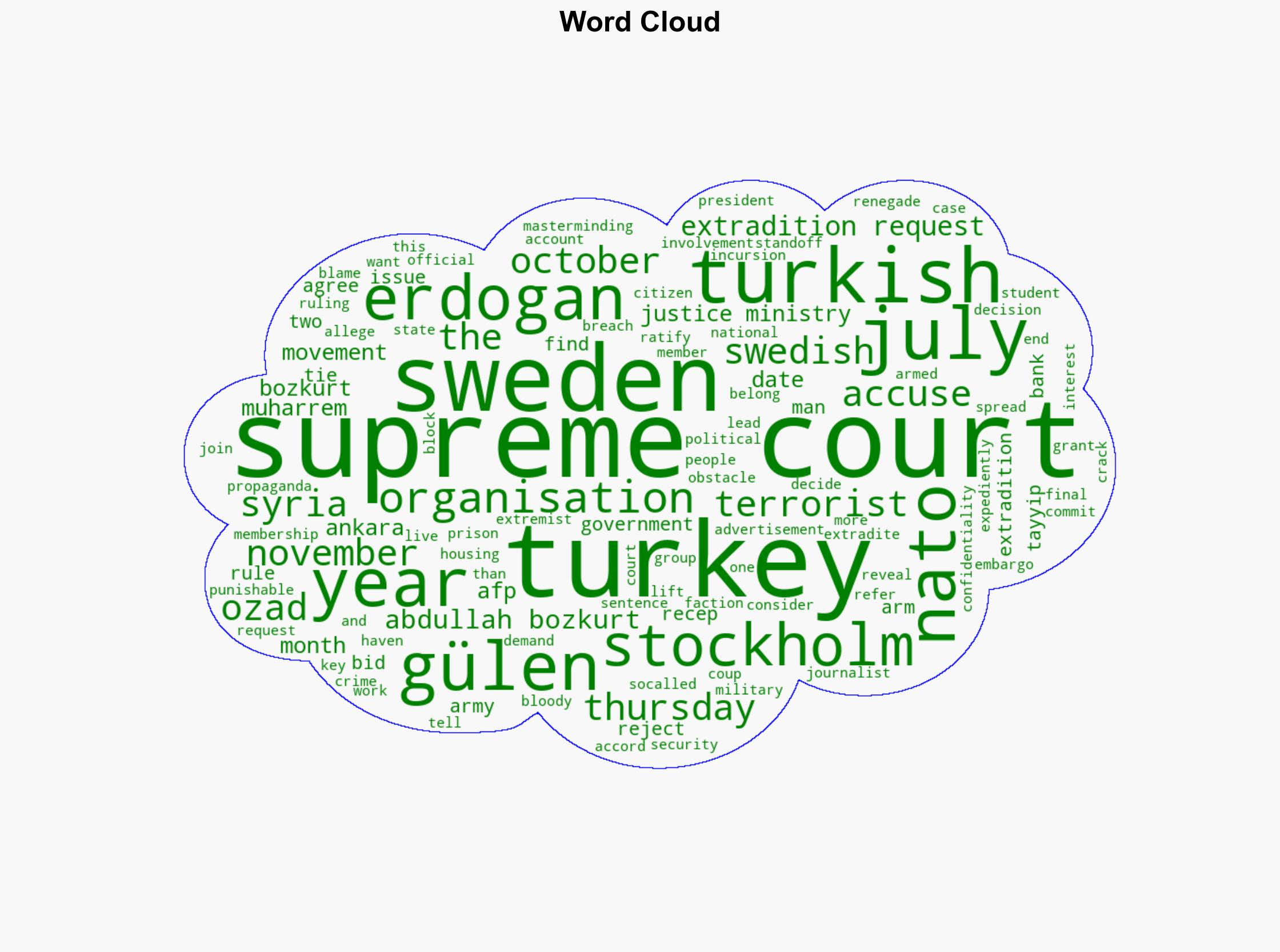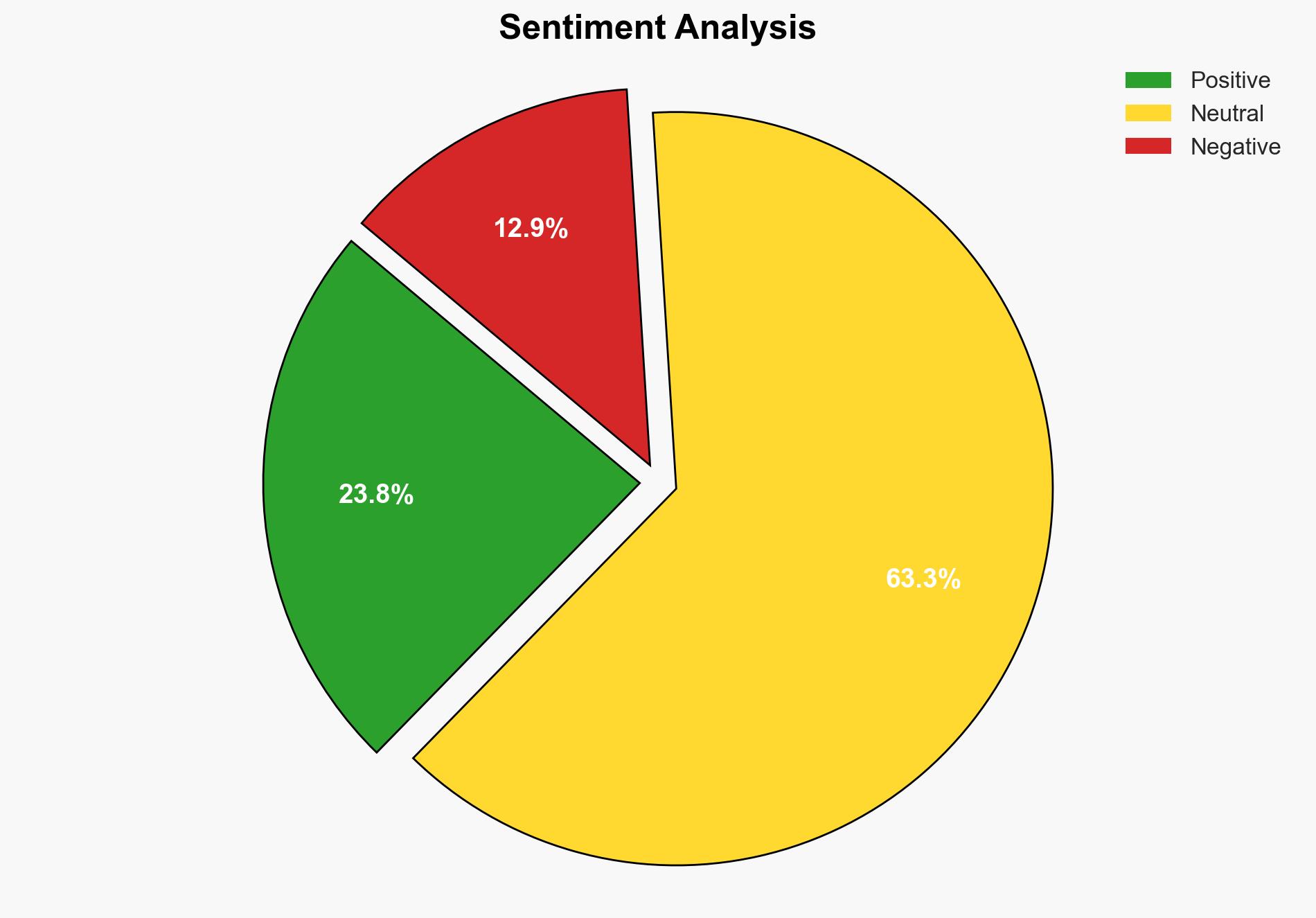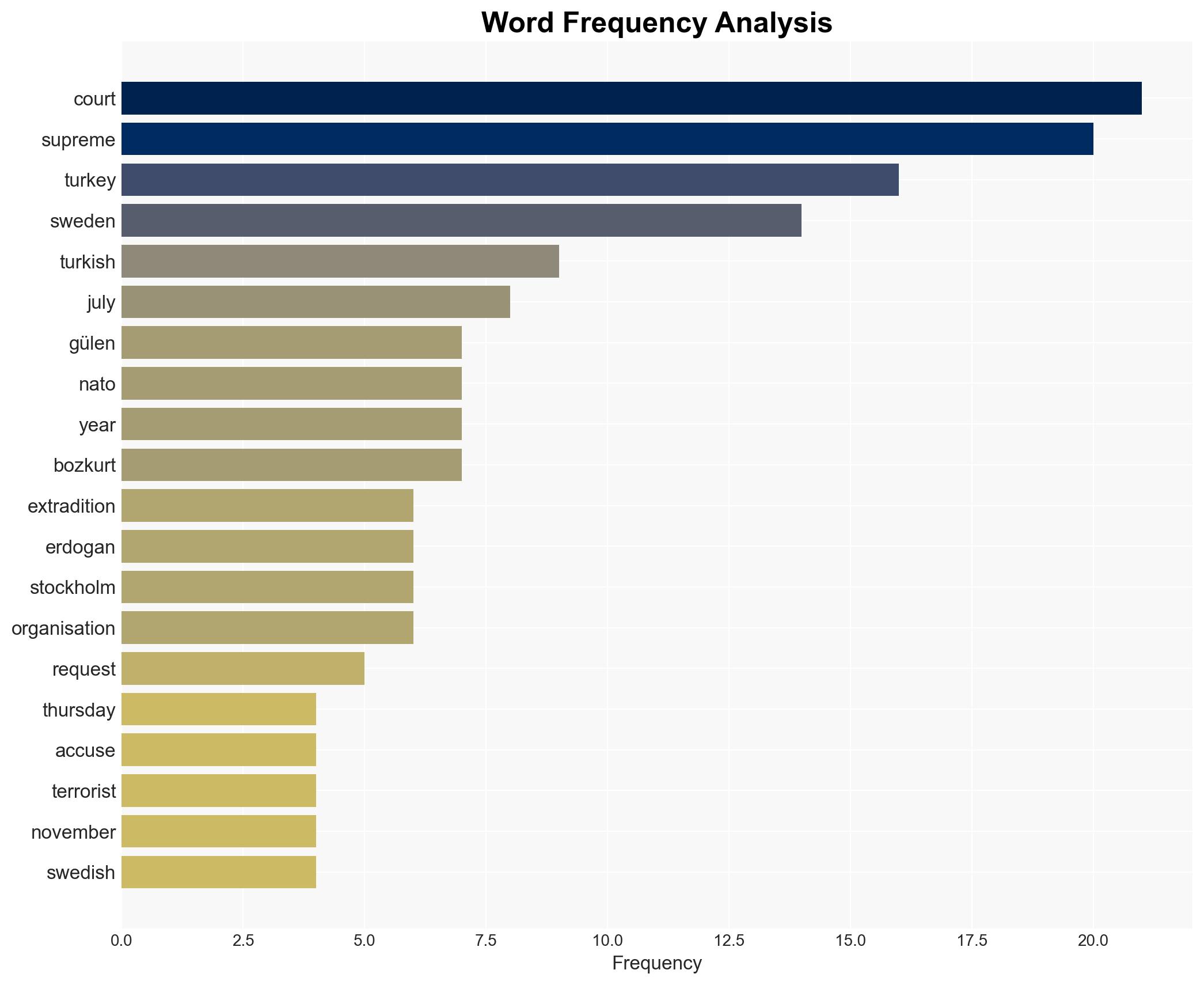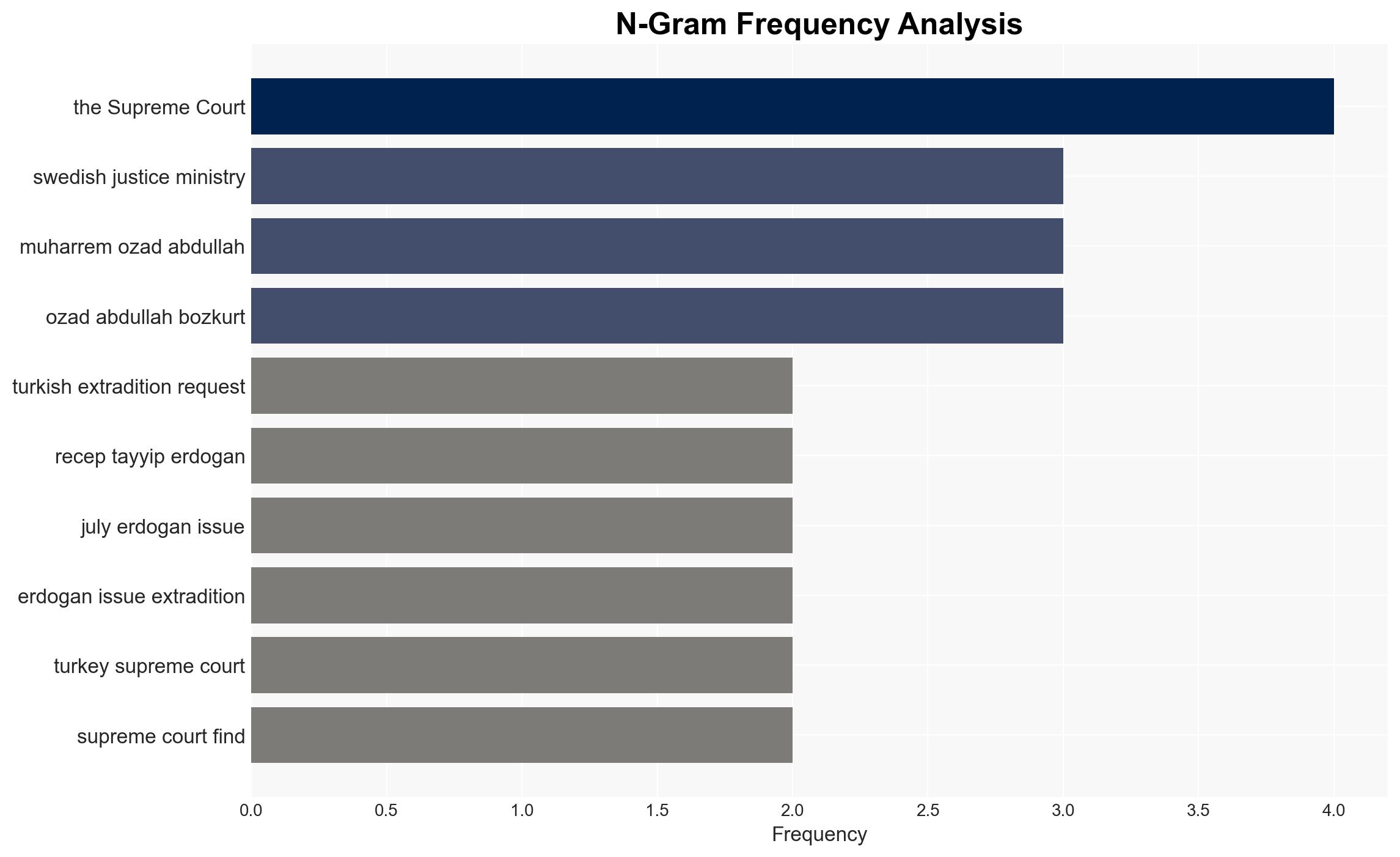Sweden rejects two extradition requests from Turkey – The Local Sweden
Published on: 2025-11-20
AI-powered OSINT brief from verified open sources. Automated NLP signal extraction with human verification. See our Methodology and Why WorldWideWatchers.
Intelligence Report:
1. BLUF (Bottom Line Up Front)
Sweden’s decision to reject Turkey’s extradition requests for individuals allegedly linked to the Gülen movement is likely to strain Sweden-Turkey relations, complicating Sweden’s NATO accession process. With a moderate confidence level, the most supported hypothesis is that Sweden’s legal and human rights frameworks are prioritized over political expediency. Recommended action includes diplomatic engagement to address Turkey’s security concerns while maintaining Sweden’s legal standards.
2. Competing Hypotheses
Hypothesis 1: Sweden’s rejection of extradition requests is primarily based on legal and human rights considerations, reflecting its commitment to judicial independence and international human rights standards.
Hypothesis 2: Sweden’s decision is influenced by geopolitical considerations, potentially using the legal framework as a pretext to resist Turkey’s demands and maintain leverage in NATO negotiations.
The first hypothesis is more likely, given Sweden’s established legal processes and the Supreme Court’s involvement, which suggests a strong adherence to judicial independence. However, geopolitical factors cannot be entirely dismissed due to the timing and context of NATO accession talks.
3. Key Assumptions and Red Flags
Assumptions: Sweden’s legal system operates independently of political influence; Turkey’s extradition requests are perceived as politically motivated by Swedish authorities.
Red Flags: Potential for Turkey to escalate diplomatic pressure or retaliate through other means, such as blocking NATO accession or imposing economic measures.
Deception Indicators: Turkey may exaggerate the threat posed by the individuals to leverage political concessions from Sweden.
4. Implications and Strategic Risks
The rejection could lead to a prolonged diplomatic standoff, affecting Sweden’s NATO accession timeline and regional security dynamics. There is a risk of Turkey leveraging its position to extract concessions from other NATO members, potentially destabilizing alliance cohesion. Additionally, Turkey could engage in informational campaigns to sway public opinion against Sweden.
5. Recommendations and Outlook
- Engage in high-level diplomatic dialogue with Turkey to address security concerns while reaffirming Sweden’s commitment to legal standards.
- Coordinate with NATO allies to ensure a unified response to Turkey’s demands and mitigate potential alliance fractures.
- Best-case scenario: Sweden and Turkey reach a diplomatic resolution, facilitating Sweden’s NATO accession without compromising legal principles.
- Worst-case scenario: Turkey escalates tensions, leading to a prolonged diplomatic impasse and potential regional instability.
- Most-likely scenario: Continued diplomatic negotiations with periodic escalations, requiring sustained engagement from Sweden and NATO allies.
6. Key Individuals and Entities
Recep Tayyip Erdogan, Muharrem Ozad, Abdullah Bozkurt.
7. Thematic Tags
Structured Analytic Techniques Applied
- Cognitive Bias Stress Test: Expose and correct potential biases in assessments through red-teaming and structured challenge.
- Bayesian Scenario Modeling: Use probabilistic forecasting for conflict trajectories or escalation likelihood.
- Network Influence Mapping: Map relationships between state and non-state actors for impact estimation.
Explore more:
National Security Threats Briefs ·
Daily Summary ·
Support us





